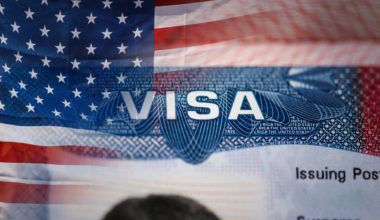Finding an international job with visa sponsorship is a significant opportunity to advance your career, earn better wages, and experience diverse cultures. However, navigating the process requires strategy, persistence, and the right resources. This comprehensive guide provides detailed insights into finding these opportunities, tailored for professionals and job seekers, particularly from Africa and other developing regions.
Why Seek International Jobs with Visa Sponsorship?
Before diving into the process, let’s explore why international jobs with visa sponsorship are so valuable:
- Global Career Opportunities: Working abroad opens doors to industries and roles unavailable in your home country.
- Economic Benefits: Higher salaries and benefits in developed countries significantly improve living standards.
- Skill Development: Gain exposure to advanced technologies, management styles, and global work cultures.
- Pathway to Residency: Many work visas serve as stepping stones to permanent residency and even citizenship.
- Cultural Immersion: Experience new environments, cuisines, and traditions.
Understand Visa Sponsorship
Visa sponsorship happens when an employer helps a foreign worker obtain legal authorization to work in their country. This typically includes covering the visa application costs and ensuring compliance with immigration laws.
Types of Visa Sponsorship
There are several visa sponsorship categories depending on the country and industry:
- Temporary Work Visas: For short-term employment, often seasonal or project-based.
- Skilled Worker Visas: For professionals in specialized fields such as IT, healthcare, and engineering.
- Unskilled Work Visas: For labor-intensive jobs like farming, hospitality, or construction.
- Permanent Work Visas: For long-term employment, usually tied to residency pathways.
Research Countries Offering Visa Sponsorship
Some countries actively seek foreign workers to address labor shortages. Here are some of the best options:
1. Canada
Canada is one of the most immigrant-friendly nations, with numerous opportunities for skilled and unskilled workers.
- Top Sectors: Healthcare, IT, agriculture, construction, and skilled trades.
- Popular Visas:
- Express Entry: A point-based system for skilled workers.
- Temporary Foreign Worker Program (TFWP): For labor shortages.
- Seasonal Agricultural Worker Program (SAWP): For farm workers.
Key Insight: Provincial Nominee Programs (PNPs) offer additional opportunities for workers in specific regions.
2. United Kingdom
The UK’s points-based immigration system favors high-demand occupations.
- Top Sectors: Healthcare, IT, education, and engineering.
- Popular Visas:
- Skilled Worker Visa: For professionals in shortage occupations.
- Health and Care Worker Visa: For nurses, doctors, and caregivers.
- Seasonal Worker Visa: For agricultural jobs.
Key Insight: The UK Shortage Occupation List outlines roles with fast-track visa processes.
3. Germany
Germany’s aging population has created a strong demand for foreign labor in both skilled and unskilled roles.
- Top Sectors: Engineering, IT, healthcare, and manufacturing.
- Popular Visas:
- EU Blue Card: For highly skilled professionals.
- General Employment Visa: For non-degree workers with relevant experience.
- Seasonal Work Visa: For short-term agricultural jobs.
Key Insight: Learning basic German can significantly improve job prospects.
4. United States
The U.S. remains a top destination for workers across all skill levels.
- Top Sectors: IT, construction, hospitality, and healthcare.
- Popular Visas:
- H-1B Visa: For skilled professionals.
- H-2B Visa: For non-agricultural seasonal jobs.
- H-2A Visa: For temporary agricultural work.
Key Insight: U.S. employers often prioritize candidates with unique skills or certifications.
5. Australia
Australia offers excellent opportunities for tradespeople, healthcare workers, and seasonal laborers.
- Top Sectors: Agriculture, healthcare, mining, and construction.
- Popular Visas:
- Temporary Skill Shortage (TSS) Visa: For employer-sponsored skilled roles.
- Working Holiday Visa: For short-term seasonal jobs.
- Skilled Independent Visa: A points-based visa for professionals.
Key Insight: Regional Australia often has less competition for jobs and visa spots.
Target High-Demand Industries
Certain industries consistently have labor shortages, making them ideal for visa sponsorship jobs:
- Healthcare: Nurses, doctors, and allied health professionals are in high demand globally.
- IT and Engineering: Software developers, data scientists, and engineers are sought after in tech hubs like Canada, Germany, and the U.S.
- Agriculture: Seasonal farmworkers are needed in countries like Canada, Australia, and the U.S.
- Hospitality and Tourism: Chefs, hotel staff, and cleaners are essential in tourism-dependent economies.
- Construction: Skilled and unskilled workers are required to meet infrastructure demands in countries like Germany and Australia.
Optimize Your Job Search
To successfully secure a visa-sponsored job, you need to approach your job search strategically.
1. Use Job Portals
Many job websites specialize in visa sponsorship roles:
- LinkedIn: Perfect for networking and job applications.
- Indeed: Search for “visa sponsorship” roles in your target country.
- Relocate.me: Focused on relocation-friendly jobs.
- Work Abroad Network: Tailored for international workers.
2. Leverage Recruitment Agencies
Recruitment agencies often have direct access to employers offering visa sponsorship. Some recommended agencies include:
- Adecco: For both skilled and unskilled roles.
- Robert Half: Focused on IT, finance, and administrative positions.
- ManpowerGroup: Specializes in global workforce solutions.
3. Build a Strong Resume and Cover Letter
Employers sponsoring visas look for highly skilled and adaptable candidates. Tailor your application to:
- Highlight relevant experience and certifications.
- Emphasize adaptability and cross-cultural communication skills.
- Include proof of language proficiency (e.g., IELTS, TOEFL).
Network Effectively
Networking increases your visibility to potential employers and recruiters.
1. Join Online Communities
Participate in forums and social media groups focused on your target country or industry. Examples include:
- LinkedIn groups for global job seekers.
- Facebook communities for expats and immigrants.
2. Attend Career Fairs
International job fairs (both physical and virtual) are excellent platforms to meet recruiters and learn about visa sponsorship opportunities.
3. Leverage Alumni Networks
If you’ve attended an international university or training program, reconnect with alumni who might help you find job leads.
Prepare for Visa Applications
After securing a job offer, the next step is the visa application. Here’s how to handle it:
1. Gather Necessary Documents
Prepare a checklist to avoid last-minute delays:
- Valid passport
- Employment contract
- Proof of qualifications and certifications
- Language test results
- Medical and police clearance certificates
2. Follow Employer Guidance
Your sponsoring employer will guide you through the visa process, including:
- Completing application forms.
- Attending interviews or biometric appointments.
- Understanding visa fees and timelines.
Tips for African Job Seekers
African job seekers face unique challenges, but these strategies can boost your chances:
- Acquire In-Demand Skills: Take courses or certifications relevant to your target industry.
- Showcase Your Unique Perspective: Emphasize how your cultural diversity and experiences can benefit the employer.
- Be Persistent: Rejections are part of the process; learn from feedback and refine your approach.
Case Study: Canada’s Express Entry System
To illustrate, let’s take a closer look at Canada’s Express Entry System, a popular pathway for skilled workers.
How It Works
- Create an Online Profile: Provide details about your education, work experience, language skills, and more.
- Comprehensive Ranking System (CRS): Your profile is ranked against others using CRS points.
- Receive an Invitation to Apply (ITA): If you meet the cut-off score, you’ll be invited to apply for permanent residency.
Key Tips for Success
- Improve your CRS score by gaining additional work experience or improving language test results.
- Apply to Provincial Nominee Programs (PNPs) to boost your chances.





